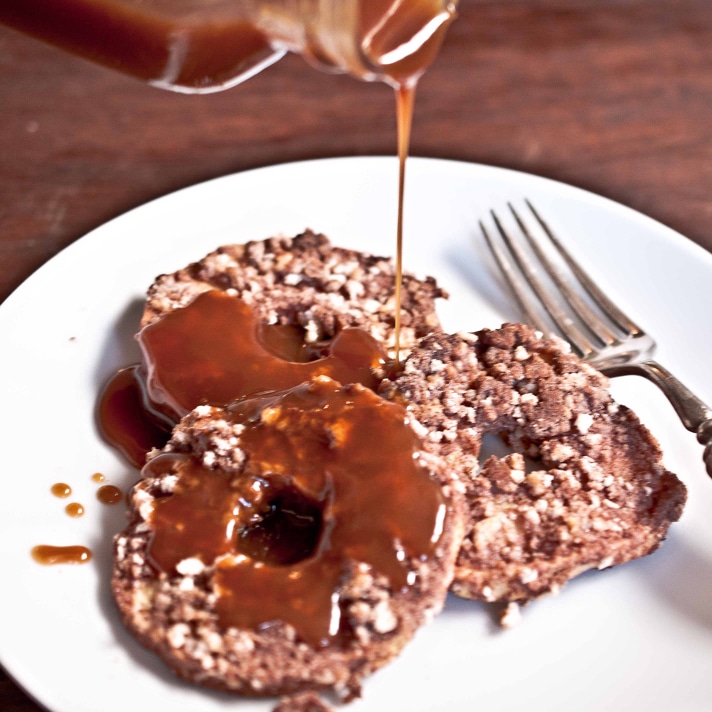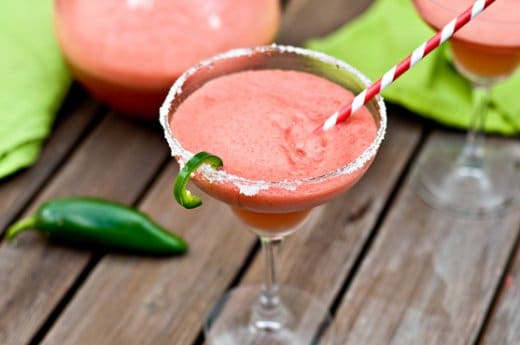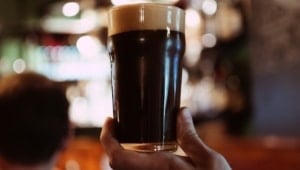Healthy Energy Drinks: Top 9 Natural Drinks + 5 Tips
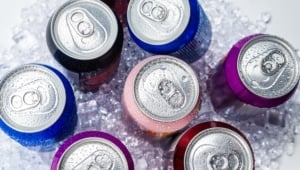
Energy drinks are ubiquitous in our modern world. But how do we know which energy drinks are healthy, and which are not? This article explores the nutritional facts when it comes to energy drinks. You will also find out what alternatives you can use to energy drinks.
Advertisers claim that energy drinks can boost performance, enhance brain function, and provide energy. Despite these claims, some authorities are concerned by the popularity of energy drinks – especially amongst youth. Several schools have banned the beverages following complaints by teachers and staff about student health and behavior.
What Energy Drinks Are

What Energy Drinks Are
The name ‘energy drink’ is a misnomer. Aside from sugar, most energy drinks provide little actual energy. What we experience as a surge in perceived energy is actually the effect of a stimulant compound on our central nervous system. When it comes to energy drinks, this stimulant compound is almost always caffeine.
The effects of energy drinks are due to their stimulant content. Stimulants provide zero energy. By accelerating the functions of your central nervous system, stimulants actually compel your body to expend a great deal of energy. To avoid burnout, and an overstressed metabolism, it’s important you consume adequate calories to match your accelerated metabolism.
This Makes an Energy Drink ‘Natural’ or Healthy
‘Natural’ energy drinks claim to contain ingredients that are less processed or artificial than those in other energy drinks. Many people associate this unrefined approach with good health. Lower sugar and lower calorie content are all hallmarks of so-called healthy energy drinks.
Low Sugar Content

Low Sugar Content
High sugar diets are linked to a host of medical maladies. Sugar is also a source of calories that our bodies can convert with extreme efficiency into energy.
This is why you will often witness high performance athletes consuming products such as glucose gels (pure sugar) when they compete. The key to good health seems to be balanced sugar consumption and energetic output. It’s always better to not consume sugar.
No Added Preservatives
Artificial preservatives can lead to a number of poor health outcomes. They are found in almost all prepackaged foods and they may be causes of:
- Hormonal imbalance: leading to fertility issues, and early onset or delayed puberty
- Cardiovascular disease and dysfunction: affecting your blood’s capacity to carry vital oxygen to your brain
- Immune and nervous system dysregulation: leading to physical and mental disorders
- Obesity: leading to social stigmatization and poor healthcare outcomes
- Thyroid dysfunction: disrupting early brain development
- Risk of cancer: leading to life threatening illness.
Because of the risks associated with preservatives, many healthy energy drinks try to use as little of them as possible.
Zero To Low Artificial Sweeteners Or Coloring
Not only is sugar a highly distrusted ingredient amongst wellness gurus, artificial sweeteners are regarded with a good deal of suspicion too. Because of this, many healthy energy drinks opt for natural sugar-free sweeteners such as stevia. Artificial colorings are also often considered unhealthy. Some people even believe certain artificial colors can worsen the symptoms of attention deficit disorders in children.
Natural Ingredients
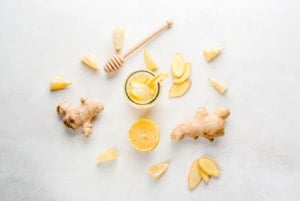
Good for Your Health: Natural Ingredients
Natural ingredients are perceived to be more healthy than processed ones. The assumption is that an ingredient is at its best when it is consumed as close to its raw form as possible. On the other hand, some processed foods allow for a more efficient uptake of energy and nutrients – with unnecessary organic byproducts disposed of.
Both approaches to diet evoke two different ideals of purity:
- Natural ingredients are more ‘pure’ in the sense that they are more representative of their natural origins
- Refined ingredients are more ‘pure’ in the sense that they provide a product that represents a single component of a more complex organic source.
Balanced Caffeine Content
The caffeine in energy drinks is frequently sourced from camellia (tea) leaves, coffee cherries, guarana berries, guayusa leaves, or synthesized in a lab. Whatever the source, your caffeine intake ought to be balanced. Consuming the right amount of caffeine can lead to improved focus, alertness, and good mood. Overdoing it can lead to headaches, dehydration, caffeine intoxication, anxiety, and tremors.
Vitamins And Minerals

Vitamins And Minerals
A healthy human diet requires a range of vitamins and minerals. Sometimes these vitamins and minerals occur naturally in organic foodstuff ingredients.
Other times, it might be necessary to supplement a normal diet with the addition of certain vitamins and minerals. Many energy drinks include vitamins and minerals that can benefit your health.
Low Calories
All of our energy is generated by caloric intake. Despite this, low calorie foods and beverages are often marketed as healthy. Low calorie diets have been popularly associated with beauty and health for some time now. This is generally motivated by a societal preference for underweight bodies vs. overweight ones.
Top 9 List: The Best Healthy and Natural Energy Drinks
The following list consists of energy drinks which are all marketed as ‘healthy’ or ‘natural’, or both. Let’s detail the justifications for those claims.
Celsius Live Fit

Healthy Energy Drink: Celsius Live Fit
Celsius Live Fit is marketed to fitness enthusiasts. Its stimulant effect is provided by the natural caffeine present in green tea and guarana berries. This energy drink also contains ginger root and seven essential vitamins – considered beneficial to health.
Celsius Live Fit also prides itself on containing no sugar, aspartame, high-fructose corn syrup, or artificial preservatives, colors, and flavors.
Zevia Zero Calorie Energy Drink
To no one’s surprise, Zevia Zero Calorie Energy Drink contains zero calories. It also contains no sugar. Technically, this means that this energy drink contains no energy. Regardless, Zevia Zero Calorie Energy does contain 120 mgs of caffeine – more than sufficient to jolt your nervous system into action.
ZOA Zero Sugar Health Warrior Energy Drink
This energy drink is the baby of Dwanye Johnson or, as you might know him, The Rock. While we haven’t personally smelt what The Rock is cooking, we do know the active ingredients in his ZOA Zero Sugar Health Warrior Energy Drink. This drink derives its stimulant effect from caffeine found in green tea leaves and green coffee beans. Additional health benefits come from:
- Camu camu extract: an Amazonian anti-inflammatory fruit high in vitamin C
- Vitamin B and C vitamins: supporting immune health and mental focus
- Electrolytes: supporting proper hydration
- Amino acids: for muscle growth and repairs
ZOA Zero Sugar Health Warrior Energy Drink also contains zero sugar and is keto diet compatible.
Nuun Energy

A Healthy Energy DrinkNuun Energy
Nuun Energy promises 80 mg of caffeine – extracted from organic green tea – per serving. The stimulant content is supplemented with ginseng, B12 vitamin, and B6 vitamin.
Nuun is proudly vegan, kosher, gluten free, and non-GMO certified. Nuun energy contains 2 g of sugar, and 15 calories total.
And for us – this energy drink also tastes very good.
Sambazon Amazon Energy
These energy drinks are powered by caffeine extracted from yerba mate, green tea, and guarana. Sambazon Amazon Energy contains açaí – a plant rich in antioxidants and omegas 3, 6, and 9.
It is advertised as being free from artificial ingredients. Sambazon Amazon Energy is brewed from fair trade, organically grown, and ethically sourced açaí.
LIFEAID FOCUSAID Clean Energy
Green tea and yerba mate extract provide the caffeine/stimulant component to this energy drink. LIFEAID FOCUSAID Clean Energy also contains vitamins B6, B12, C, D3, and biotin. Stevia extract is used instead of sugar for sweetener. There is a total of 20 calories in LIFEAID FOCUSAID Clean Energy – so it does indeed provide the energy its name implies.
Alani Nu Sugar-Free Energy Drink
There is zero sugar in Alani Nu Sugar-Free Energy Drink. Alani Nu Sugar-Free Energy Drink offers 15 calories of energy, and 200 mg of caffeine. B5, B6, B12, and Biotin supplements are included in the drinks formulation. This drink also contains two different preservative compounds, and it is unclear whether the ingredients are synthetic or naturally derived.
Rowdy Energy Rowdy Energy Drink

Rowdy Energy Rowdy Energy Drink for Health
Each can contains 160 mg of caffeine – derived from green tea and green coffee beans. Rowdy Energy Rowdy Energy drink is sugar free and sweetened by a mix of naturally derived sweeteners. It contains zero artificial colors, flavors, or preservatives.
This beverage also incorporates an electrolyte blend that encourages effective hydration. Also you will enjoy the good taste and aroma of this drink.
Remedy Kombucha Good Energy
Remedy Kombucha Good Energy contains zero sugar, and 5 calories per serving. The stimulant component of this beverage is natural caffeine – derived from black tea, green tea, and coffee bean extract. Sweetness is added with erythritol and natural stevia. There are no added supplement ingredients, and this beverage has no significant nutritional value.
The Most Healthy Energy Drink
LIFEAID FOCUSAID Clean Energy is our pick for the healthiest energy drink. We based this appraisal on the 20 calories of energy within LIFEAID FOCUSAID Clean Energy. Additionally this energy drink offers significant nutritional value with added B6, B12, C, D3, and biotin. Yerba mate and green tea both offer caffeine formulations that lead to fewer caffeine jitters and stimulant withdrawal crashes.
This Is How Healthy Popular Energy Drinks Are

This Is How Healthy Popular Energy Drinks Are
We’ve picked out a few popular ‘healthy’ energy drinks to take a closer look at. Let’s see how healthy these popular energy drinks really are.
We have chosen especially the very famous drinks, because many people consume the drink without hesitation. So for the next time a good friend drinks one of these energy drinks, you can shine with your knowledge.
Are V8 Energy Drinks Healthy?
V8 Energy Drinks offer vitamins C, B3, B6, and B12. They contain caffeine extracted from black and green tea. As with most fruit juice products, V8 Energy Drinks contains sugar (10 grams per can) and a total of 48 calories. If you are looking for a low calorie/zero sugar energy drink, V8 Energy Drinks are a poor choice.
If you are looking for a healthy source of calories, low GI (glycemic index) carbohydrates would be a good option.
Are Bang Energy Drinks Healthy?
Bang Energy Drinks offer 300 mg of caffeine – equivalent to about three cups of coffee. This is within the limits of healthy caffeine consumption for most people. All nine essential amino acids required for muscle growth and recovery are included in Bang Energy Drinks’ formulation. This makes Bang Energy Drinks a useful supplement for the health of athletes.
Are Alani Nu Energy Drinks Healthy?
Alani Nu Energy Drinks contain two different preservative compounds – some people might consider this unhealthy. On the other hand, Alani Nu Energy Drinks were a close second in our rankings for most healthy energy drink. This is due to the 15 calories plus B5, B6, B12, and Biotin supplements available in this beverage. In our opinion, Alani Nu Energy drinks offer some nutritional value to overall health.
Are Celsius Drinks Healthy?

Are Celsius Drinks Healthy?
Celsius Live Fit drinks offer 10 calories of energy and seven essential vitamins. The caffeine is extracted from green tea and guarana.
These stimulants offer a smoother high, and gentler comedown, than caffeine from coffee beans. Celsius Live Fit drinks contain zero sugar – which some people consider healthier. Also it doesn’t mean the healthier drinks taste less good.
Are Red Bull Energy Drinks Healthy?
250 ml cans of Red Bull contain 80 mg of caffeine – it’s unclear where this is sourced from. B3, B5, B6, B12, and taurine are all supplements found in Red Bull energy drinks. Classic Red Bull energy drinks contain 27.5 grams of sugar and 107 calories. Red Bull makes no claims to avoid synthetic or artificial ingredients – making it unhealthy in some people’s opinion.
Do’s: How to Get the Best and Healthiest out of Energy Drinks
It’s hard to keep track of all the factors that put a beverage in the healthy or unhealthy column. Let’s break down a few common health considerations that people apply to energy drinks.
Choose Natural Ingredients
Natural ingredients are often assumed to be more ‘healthy’. ‘Natural’ refers to ingredients that have hypothetically experienced less human interference. Many wellness gurus consider this lack of interference to have a positive impact on health. However, humans have selectively bred and modified edible plants for at least 12.000 years.
It’s a challenging task; defining natural against unnatural ingredients. If you consider this distinction important to your health, you may have to decide where you personally draw the line.
Get Those With Added Vitamins, Minerals
There is no doubt that a number of vitamins and minerals are crucial to human health. There are limits to maximum daily absorption of many vitamins and minerals. Regardless, it can’t hurt to consume beverages that help you meet all of your nutrient needs. Research the vitamins and minerals that are optimum for your health, and choose products accordingly.
Find Low Sugar Content

Find Low Sugar Content
Sugar is a high GI source of calories. It can lead to blood sugar spikes that negatively affect the health of some people. Being aware of your sugar intake and tailoring it to your caloric needs may promote better health. Check the sugar content of energy drinks, and moderate your consumption accordingly.
It is always better to avoid sugar completely and use natural products.
Limit Intake, Hydrate With Water Too
Energy drinks are not a replacement for the queen of hydration – water. If you are drinking more energy drinks than H20, you could be negatively impacting your health. Energy drinks contain caffeine – which is a healthy stimulant for many people, in low doses. Make sure your energy drink consumption doesn’t elevate your daily caffeine intake to dangerous levels.
Avoid Alcohol Mixing
Alcohol is a depressant, while caffeine is a stimulant. Mixing the two chemicals can be very dangerous for your central nervous system and bodily functions. Although both chemicals are legal in the US, they are both (medically-speaking) drugs. Mixing drugs (regardless of legality) is always extremely ill advised.
Check Caffeine Content

Check Caffeine Content for Healthy Energy Drinks
Consuming a maximum 400 mg of caffeine per day is the recommended upper limit for most people. It’s important to check the caffeine content of the beverages you are drinking. Moderate your energy drink consumption to ensure you do not exceed 400 mg of caffeine per day.
Remember, energy drinks aren’t the only sources of caffeine – be aware of the impact of other sources on your consumption. Too much caffeine can quickly have a negative effect on the whole body. For example, you should not drink more than five cups of coffee per day.
Consult a Healthcare Professional if You Have an Existing Medical Condition
There are many medical conditions that require you to moderate or avoid certain ingredients. Caffeine is the most obvious ingredient that many people may need to personally moderate. It isn’t, however, the only ingredient that may need to be carefully considered by people living with medical conditions. Consult a healthcare professional if you are ever unsure about whether you should or shouldn’t be consuming any product.
Don’ts: Ingredients In Energy Drinks You Should Avoid
There are some ingredients, commonly added to energy drinks, that you may want to avoid. Let’s have a look at some of these ingredients, and their potential risks to your health.
Excessive Caffeine Content

Don’ts: Excessive Caffeine Content
Energy drinks that contain more than 400 mg of caffeine are going to push you past the recommended daily caffeine intake. Avoid drinks that will tempt you to over consume caffeine.
Make sure you can enjoy the benefits of caffeine – without suffering negative side effects. Another approach is to seek out stable alternatives to coffee bean derived caffeine.
Artificial Sweeteners
There is a spectrum of artificial sweeteners. You can educate yourself on the side effects of each compound or you can avoid them altogether. The second approach is more practical for most people. Stevia is considered to be a safe and natural sweetener by many people.
High Fructose Corn Syrup
High fructose corn syrup is metabolically indistinguishable from any other sugar. If you are trying to limit your sugar intake, keep any eye out for this ingredient. Because it is readily available and produced very cheaply, high fructose corn syrup is an ingredient in many products. Energy drinks are no exception to this rule.
Unknown Herbal Ingredients
Unknown herbal ingredients have all the same potential dangers as artificial or synthetic ingredients. If a herb is not well researched and documented, it may have unknown side effects.
Beware of marketers pushing new super foods or herbs. Not only can these ingredients be of dubious efficacy, they are often extracted unethically from wild environments.
Alcohol Content
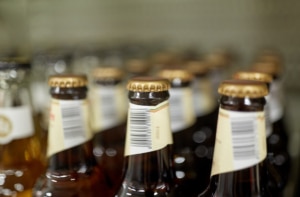
Alcohol Content: A Don’t for Healthy Energy Drinks
This one should be a no-brainer. Alcohol, despite claims by the industry, has very few medical benefits. In addition, alcohol consumption is directly linked to a huge number of poor health outcomes. Mixing alcohol with the caffeine in energy drinks is especially dangerous – stimulants and depressants don’t mix well.
Try to avoid alcohol as often as possible – but for sure in energy drinks, if you want them to be healthy and not harmful for your body. Alcohol is associated with various diseases and organ damages.
Tips How to Increase Your Energy Level Naturally
Low calorie energy drinks use caffeine to stimulate your central nervous system and metabolism. This doesn’t increase available energy in your body – it encourages you to deplete your energy sources at a quicker rate. There are, however, many simple ways to increase your energy level.
Get Enough Sleep
Many people consume caffeine to offset the negative side effects of inadequate sleep. If you want to stop using caffeine to accommodate insufficient sleep, the solution is self-evident. You need to sleep more. Not only is more sleep beneficial, regular sleep patterns are crucial for good health.
Stay Hydrated
Human bodies need to be adequately hydrated for optimum performance. Your metabolism will fail to process caloric energy efficiently if you are dehydrated. Depending on your body weight and composition, you will require more or less water daily. Be sure to remember that excessive hydration can also have negative health impacts.
Exercise Regularly

Exercise Regularly
Regular exercise will boost your mood and your metabolism. Although exercise doesn’t lead to you literally having more energy, it does promote a sense of wellness, alertness, and clearheadedness. Be sure to exercise at a frequency and intensity that is appropriate for you.
Always consult a medical professional if you have any concerns about your exercise regime.
Eat a Balanced Diet
Diet is the most important factor, when it comes to energy. The caloric energy in food is the fuel your body runs on. It is crucial that your caloric intake supports your energetic output. Running on a caloric deficit will make you feel weak and low on energy all of the time.
Reduce Stress
Your brain and nervous system burn huge quantities of energy. Stress will lead to overconsumption of energy and leave you at a caloric deficit. The hormones produced by a body under stress will leave you feeling drained and burnt out. While caffeine can simulate the sensation of increased energy, it can also intensify the energy-draining symptoms of stress and anxiety.
Healthy Alternatives to Energy Drinks

Healthy Alternatives to Energy Drinks
There are some nutritional benefits to energy drinks. However, all of those benefits can be found elsewhere. Let’s consider a few alternatives to energy drinks.
In this list you will find a varity of healthy drinks – as for example green tea, juice or smoothie. But if you want the drinks to be especially healthy, you should always make sure that they contain no sugar and preferably no additives. Also make sure that you drink an appropriate amount of drinks per day.
Green Tea
Green tea is a source of caffeine. Many people experience a gentler high and drop when they consume green tea vs. other common sources of caffeine. Green tea is also rich in antioxidants. Famously, Buddhist monks often consume green tea to maintain focus during long periods of meditation.
Fresh Juice
Fresh juice can provide a good source of nutrients and caloric energy. Fruit juice that doesn’t include pulp has significantly less nutritional value than high pulp juice. The downside of fresh juice is its extremely high sugar content. Eating a whole fruit may be a better strategy than drinking juice when it comes to balancing nutritional benefits and deficits.
Natural Energy Bars
There are many different varieties of ‘natural’ energy bars. Some of those bars may be a better source of nutrients than some energy drinks. Obviously the devil is in the details. Check ingredient lists and nutrition breakdowns before consuming any food product.
Smoothies
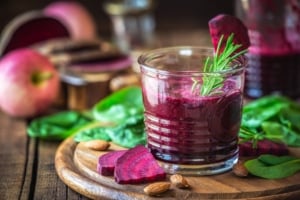
A Healthy Alternative to Energy Drinks: Smoothies
Smoothies can be made from a limitless number of supplements and ingredients. As a category, it’s about as broad as salads. This means you can easily optimize a smoothie to support your specific dietary needs. If you are purchasing pre-made smoothies, be sure to check out ingredient lists and nutrition breakdowns.
Homemade smoothies are especially delicious. Here you can experiment with different ingredients such as bananas, strawberries, blueberries and other fruits. Especially healthy are green smoothies, drinks that contain mainly vegetables.
Kombucha
Kombucha is a fermented beverage. A kombucha culture is combined with sugar and, commonly, black tea to produce a distinctive tasting beverage. The living kombucha culture consumes the majority of the sugar, but the caffeine content remains somewhat stable in kombucha brews. Many people consider fermented products to be beneficial to health, and kombucha also provides a source of caffeine.
